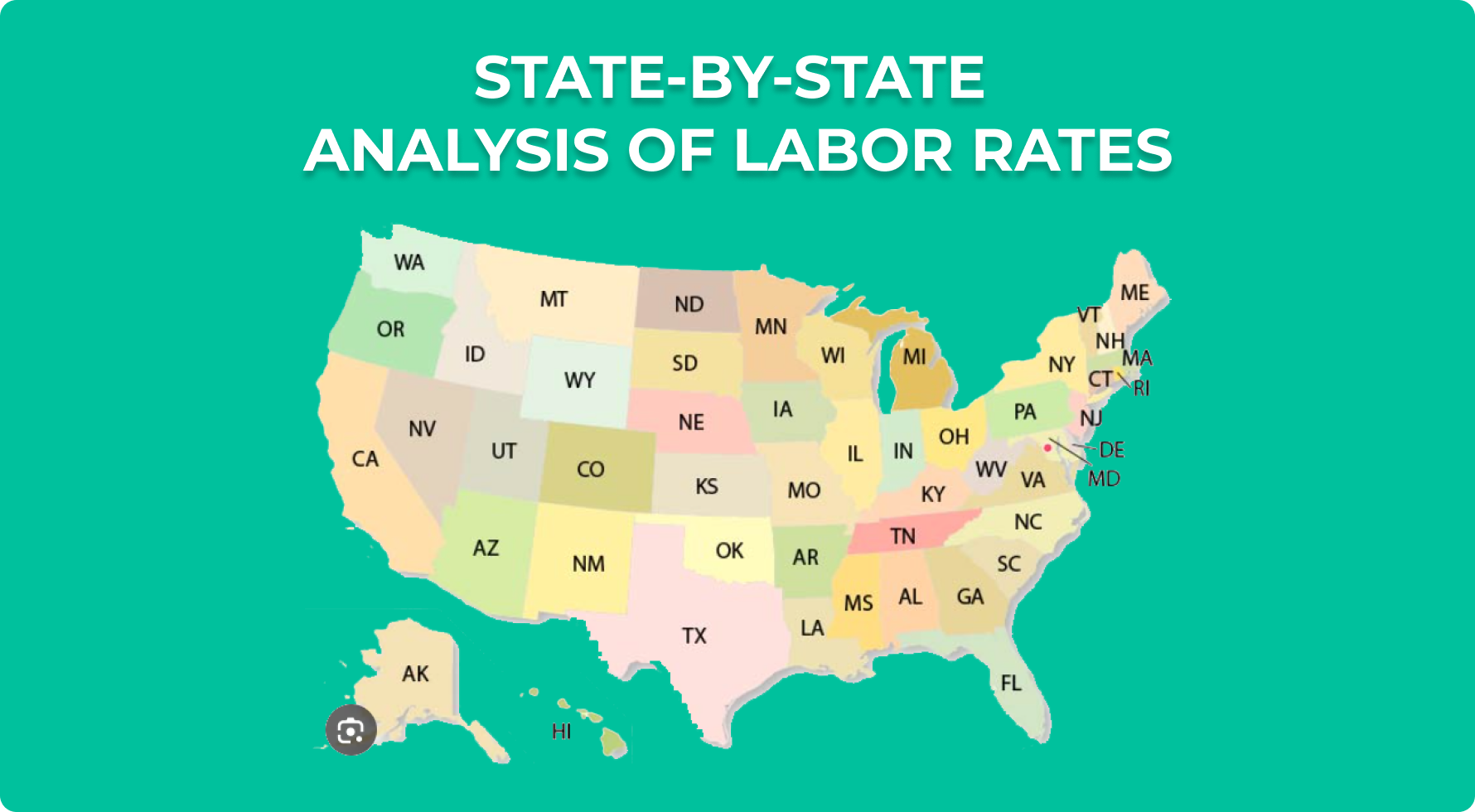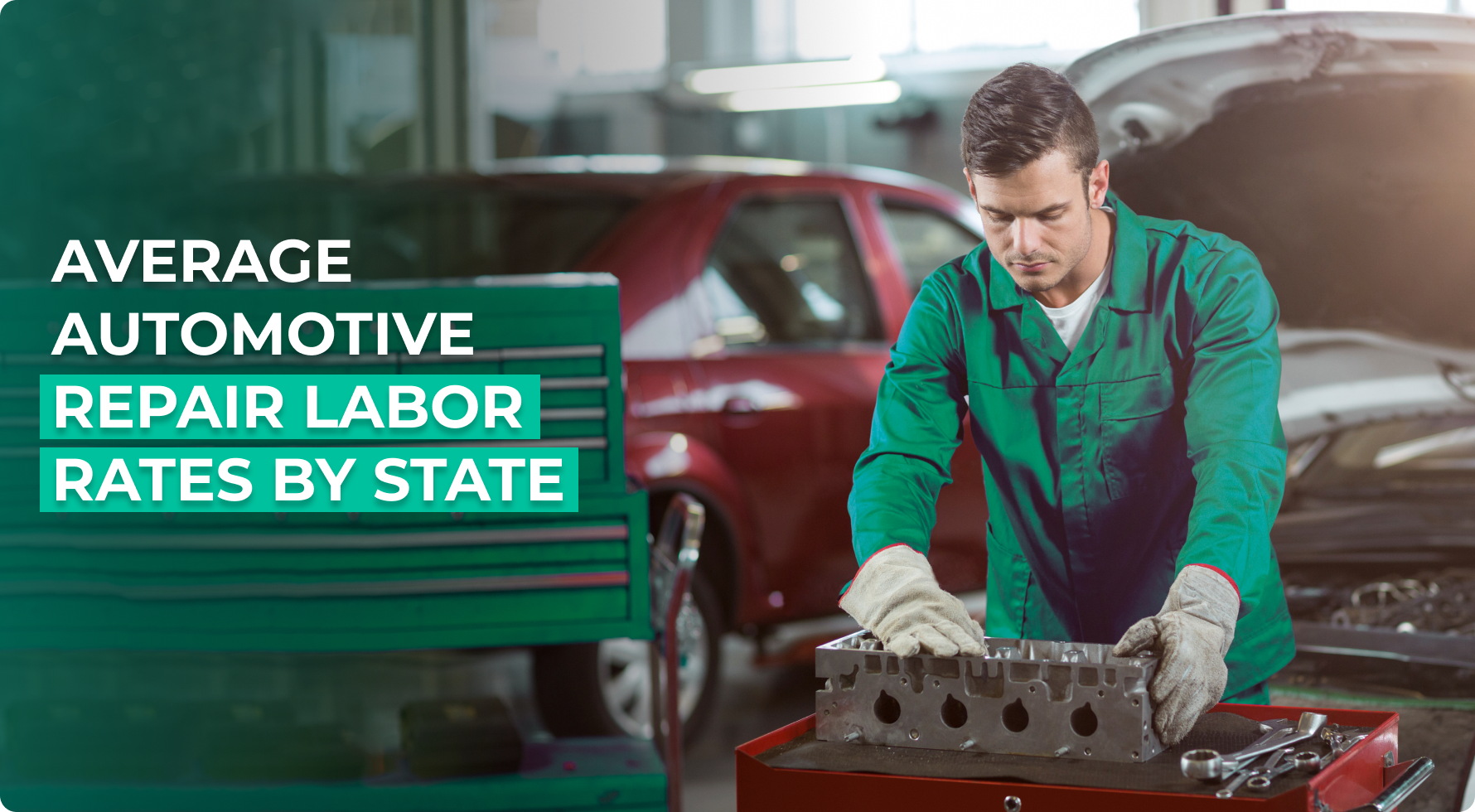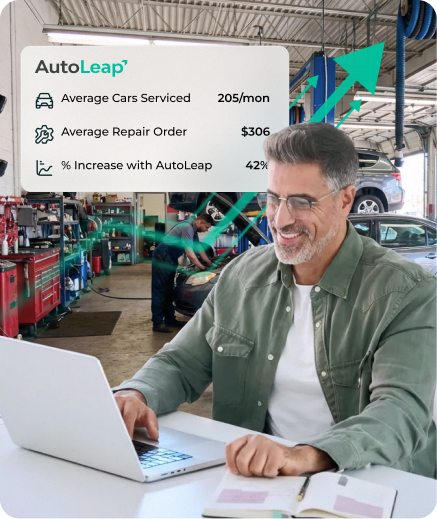Factors that influence auto repair labor rates
So why do labor rates vary across states? They vary significantly from state to state due to economic, regulatory, and market factors.
State regulations
Different states have varying regulations regarding labor laws. This can impact wage standards and, consequently, labor rates. California has strict labor laws. These include minimum wage requirements and extensive overtime regulations. These laws increase the baseline cost of employing mechanics. This raises the labor rates for automotive repair services. Conversely, states like Texas have more lenient labor laws. This results in lower overall labor costs.
Cost of living
Certain states, such as New York and San Francisco, have higher living costs. This generally leads to higher wages and labor rates. Of course, with a higher living cost, you have to ensure workers can maintain a reasonable standard of living.
Mechanics need higher wages for housing, transportation, and other living expenses. As a result, labor rates in these cities are higher. In contrast, states like Mississippi have a lower cost of living. That means lower labor rates.
Demand for services
In areas with a higher demand for automotive repair services, labor rates may be higher due to the increased need for skilled mechanics. For example, in densely populated states like New Jersey, many vehicles are on the road, creating a greater demand for automotive repair services and leading to higher hourly labor rates.
Average wages in the area
The prevailing wage levels in a state or region play a significant role in determining labor rates. States with higher average wages typically have higher labor rates for auto repairs. Massachusetts, Washington, Colorado, and New York are some of the states with the highest salaries. According to Automotive Management Network, California has the highest average labor rates ($173).
This automatically influences the labor rates in the automotive repair sector. Businesses must offer competitive pay to attract skilled workers. They have higher labor rates as compared to other states with lower salaries, such as Arkansas and Mississippi.
Geographic factors
In remote or economically isolated states, the costs of goods, services, and labor can be higher due to the added expenses of transportation and limited local resources. These factors can drive up labor rates in automotive repair shops.
In remote states like Alaska and Hawaii, the geographic isolation and higher import costs contribute to higher labor rates. Mechanics in these states often charge more to cover the increased costs associated with operating in remote locations.
State-by-state analysis of labor rates
Northeast
- Maine: $130-$140 per hour
- New Hampshire: $120-$135 per hour
- Vermont: $115-$130 per hour
- Massachusetts: $130-$135 per hour
- Rhode Island: $120-$130 per hour
- Connecticut: $125-$140 per hour
- New York: $135-$140 per hour
- New Jersey: $140-$145 per hour
- Pennsylvania: $135-$140 per hour
Midwest
- Ohio: $130-$140 per hour
- Michigan: $135-$145 per hour
- Indiana: $135-$145 per hour
- Illinois: $125-$140 per hour
- Wisconsin: $130-$145 per hour
- Minnesota: $135-$150 per hour
- Iowa: $130-$145 per hour
- Missouri: $135-$150 per hour
- North Dakota: $130-$145 per hour
- South Dakota: $130-$150 per hour
- Nebraska: $135-$150 per hour
- Kansas: $135-$150 per hour
South
- Delaware: $130-$145 per hour
- Maryland: $135-$145 per hour
- Virginia: $130-$145 per hour
- West Virginia: $140-$145 per hour
- North Carolina: $85-$105 per hour
- South Carolina: $130-$145 per hour
- Georgia: $140-$150 per hour
- Florida: $140-$145 per hour
- Kentucky: $140-$150 per hour
- Tennessee: $140-$150 per hour
- Mississippi: $150-$155 per hour
- Alabama: $140-$150 per hour
- Oklahoma: $135-$150 per hour
- Texas: $140-$145 per hour
- Arkansas: $140-$150 per hour
- Louisiana: $140-$150 per hour
West
- Idaho: $130-$145 per hour
- Montana: $140-$150 per hour
- Wyoming: $150-$155 per hour
- Nevada: $130-$140 per hour
- Utah: $130-$145 per hour
- Colorado: $135-150 per hour
- Arizona: $125-$140 per hour
- New Mexico: $135-$145 per hour
- Alaska: $135-$150 per hour
- Washington: $135-$145 per hour
- Oregon: $1300-$140 per hour
- California: $155-$175 per hour
- Hawaii: $120-$140 per hour
Impact of labor rates on business operations
Labor rates shape the business operations and financial health of auto repair businesses.
Here’s how labor rates impact business operations:
Pricing strategies and budget planning
Labor rates directly influence the pricing strategies of auto repair businesses. Setting prices too low in high labor rate areas can reduce profit margins, and setting them too high in low labor rate areas can drive customers away.
Moreover, understanding local labor rates helps shop owners allocate funds appropriately for payroll, equipment, marketing, and other operational expenses.
Take a moment to understand local labor rates. You want your auto shop to set prices that are competitive yet profitable. For this, you need to align your auto shop pricing strategies with local labor rates. It’ll help you attract customers and remain competitive.
Competitive positioning
Knowledge of local labor rates enables businesses to position themselves within their market. Businesses can adjust their service offerings and pricing by understanding where they stand relative to competitors. This helps them appeal to their target customer base.
Customer expectations
Now, this is important! Your customers will attach certain expectations. Customer expectations can also vary based on local labor rates. In high-labor-rate areas, customers might expect premium service, advanced diagnostics, and quick turnaround times.
Meeting these expectations will help you maintain customer satisfaction and loyalty. In lower labor rate areas, customers prioritize affordability and reliability. In this case, businesses can focus on providing cost-effective solutions without compromising quality.
Staffing and efficiency
Labor rates also impact staffing decisions. In regions with higher labor rates, businesses might prioritize hiring highly skilled mechanics who can work efficiently and complete jobs quickly. This ensures that each hour of labor is highly productive. The focus will be on higher, fewer, more efficient people. So they can get the job done faster.
In areas with lower labor rates, businesses might hire more staff to increase output and handle a higher volume of work. Balance staffing levels and labor costs to maximize efficiency and service quality.
Using auto repair labor guide software like AutoLeap can help ensure you’re aligning your shop’s labor rates with local trends, providing accurate cost estimates, and keeping your pricing competitive while maintaining healthy profit margins.
Service offerings
The type of services offered by an auto repair shop is also influenced by local labor rates. Shops in areas with higher labor rates might specialize in complex, high-margin services to justify the cost. Those in areas with lower labor rates might offer a broader range of services, including routine maintenance and quick repairs, which will help them attract a larger customer base.
Closing thoughts
By understanding these factors and leveraging automotive labor guide software, you can set labor rates that are both competitive and profitable, ensuring your auto repair shop thrives in any state. This will empower you to make informed decisions about your pricing strategy. Make sure to align your rates with local labor costs to attract customers.
We hope this comprehensive overview will equip you to set your shop’s labor rates, ensuring long-term success.
FAQs













